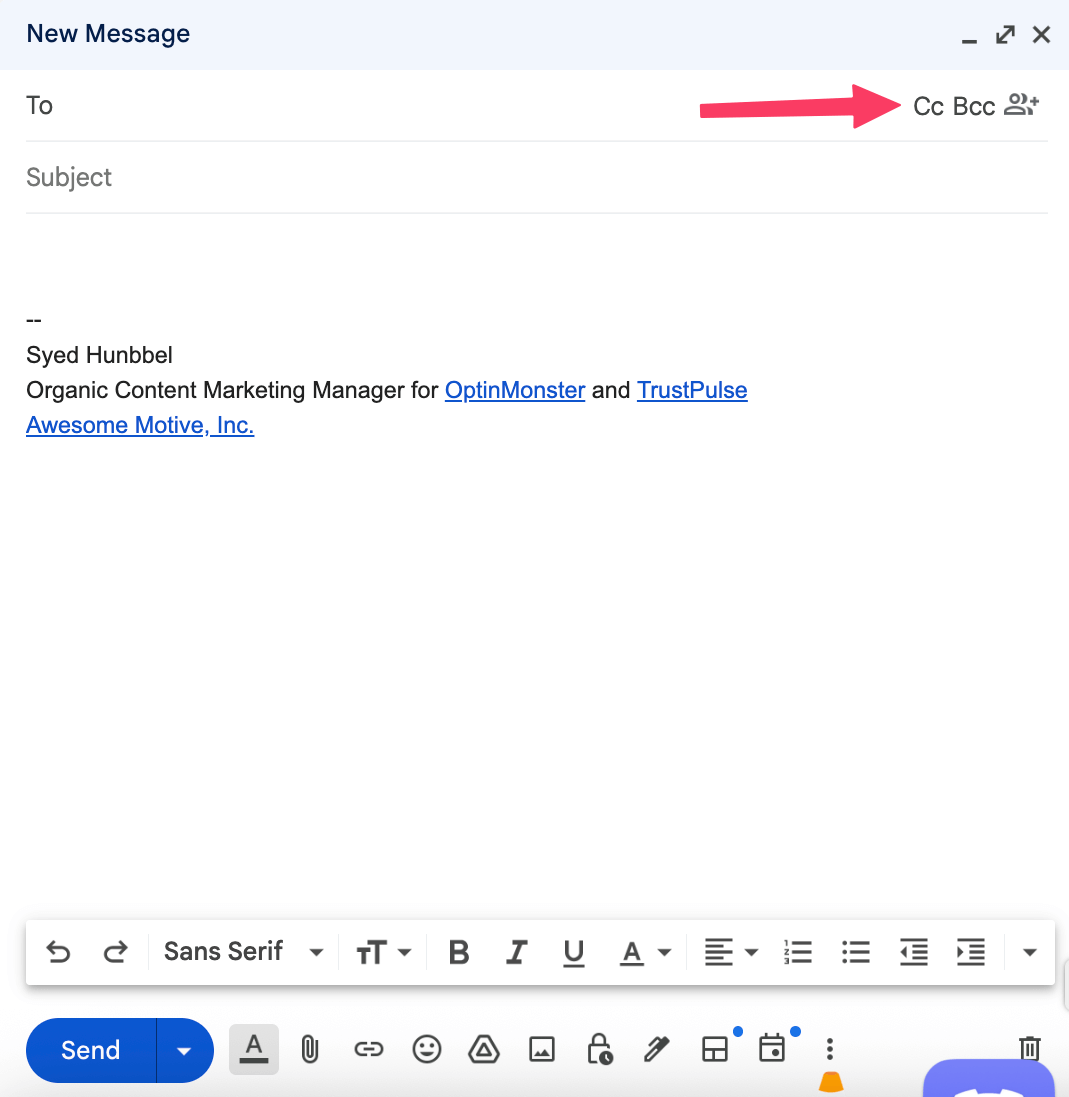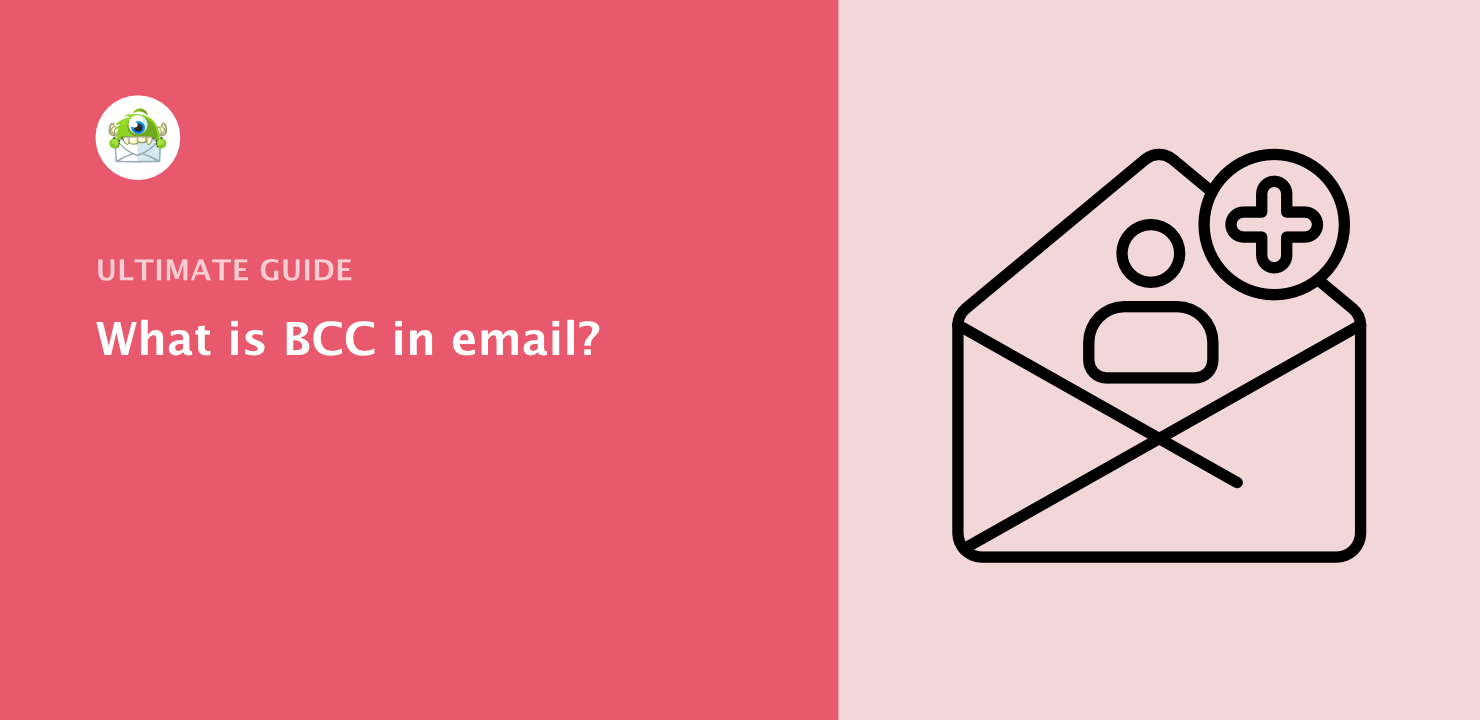BCC is a built-in email feature designed for privacy, yet many people aren’t entirely sure how to use it.
In this guide, we’ll explain what BCC stands for, how it works, when it’s the right choice, when to avoid it, how it differs from CC, and the best practices for using it in professional communication.
What Is BCC in Email?
BCC stands for “blind carbon copy” and allows you to send an email to someone without other recipients knowing they were included. Only the sender and the BCC’d person can.
The term comes from the same typewriter “carbon copy” era as CC, but in email, “blind” means hidden from view.
Where to Find the BCC Function in Email?
The BCC option is usually next to or under the CC field in your email composer.
In Gmail, you can find BCC right next to CC.

When Should You Use BCC in an Email?
Use BCC when you want to maintain privacy or prevent unnecessary “reply all” chains.
Examples include:
- Sending a mass email without exposing everyone’s addresses.
- Keeping a manager informed discreetly.
- Adding yourself to BCC for a personal record without showing it to others.
When Should You Avoid Using BCC?
Avoid BCC if it might cause confusion or mistrust.
If the BCC’d person replies to all, it could reveal they were hidden from others. For internal teams, CC is often better for transparency.
What’s the Difference Between BCC and CC?
BCC hides recipients, CC shows them.
When you BCC someone, their address is invisible to other recipients. In CC, everyone can see who else received the email.
Does BCC Mean the Recipient Has to Reply?
Usually, no.
Like CC, BCC is often used for awareness, not action. If the sender expects a response, they should address the BCC recipient directly in the email body or use the To field.
What Are Some Best Practices for Using BCC?
- Protect privacy: Always use BCC for bulk emails to unrelated recipients.
- Avoid accidental reveals: Remind BCC recipients not to reply to all.
- Use sparingly: Don’t overuse BCC in place of open communication.
- BCC yourself for records: A good way to keep a copy in your inbox.
Why Is BCC Important for Business Communication?
BCC helps maintain client confidentiality, protects contact information, and keeps communication clean by avoiding massive visible recipient lists.
For businesses, it’s especially valuable for email campaigns, sensitive updates, and maintaining a professional appearance in external communication.
In conclusion, BCC is the discreet sibling of CC. It is perfect for keeping recipients hidden, protecting privacy, and avoiding inbox chaos. It can keep communication professional and confidential if used correctly.
Want to Learn More About Emails and Email Marketing?
Check out the following posts and take your email and email marketing game to the next level.
- What is Email Marketing? (The Complete Guide)
- 100+ Best Email Subject Lines (And Why They Work!)
- What is the Best Time to Send Emails?
- 40+ Email Marketing Statistics You Need to Know
- How to Grow Your Email List
- Best Email Marketing Tools
- Common Email Marketing Mistakes You Need to Avoid
- Email Deliverability: How to Get More Emails in Inboxes










Add a Comment